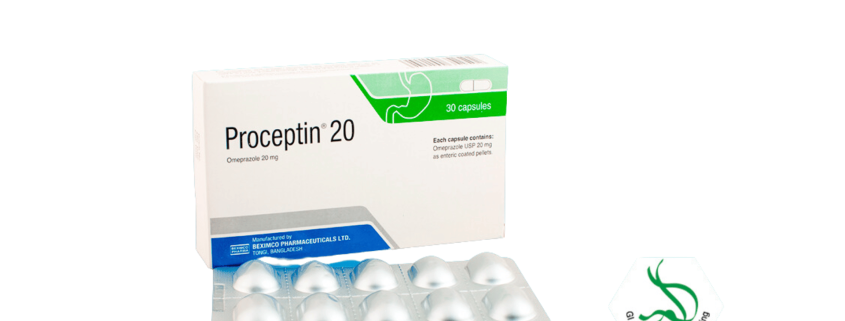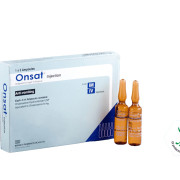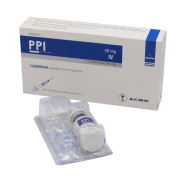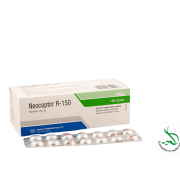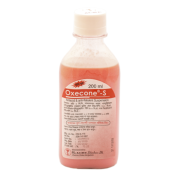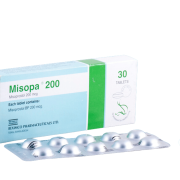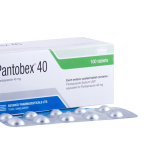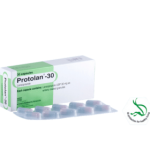Proceptin
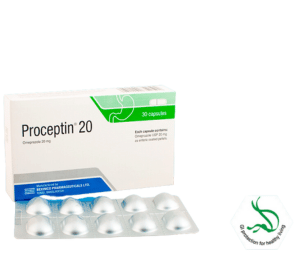
Generic Name: Omeprazole
Dosage Form: Capsules
TG Name: Gastrointestinal
1. What Proceptin® is and what it is used for?
Proceptin® is Omeprazole BP as enteric coated pellets. It reduces gastric acid secretion through a specific targeted mechanism of action. It is a specific inhibitor of the acid pump in the parietal cell.
2. Before you take Proceptin®
Omeprazole is contraindicated in patients with known hypersensitivity to any component of the formulation.
Taking other medicines
Omeprazole can delay the elimination of Diazepam, Phenytoin and Warfarin. Monitoring of patients receiving Warfarin or Phenytoin is recommended and a reduction of Warfarin or Phenytoin dose may be necessary when Omeprazole is added to treatment. Omeprazole does not interfere with Theophylline or Propranolol metabolism
Pregnancy and breast-feeding
There are no adequate or well controlled studies in this group of patients. However as with all new drugs, Omeprazole should not be given during pregnancy and lactation unless its use is considered essential.
3. How to take Proceptin®?
Always use Proceptin exactly as your doctor has told you. You should check with your doctor or pharmacist if you are not sure.
How much to take
Proceptin® Capsule:
Duodenal Ulcer: 20 mg once daily for 4 weeks. In severe cases, 40 mg once daily for 4 weeks.
Gastric Ulcer: 20 mg once daily for 8 weeks. In severe cases, 40 mg once daily for 8 weeks.
Erosive Reflux Oesophagitis: 20 mg once daily for 4 weeks. For those not fully healed, to be continued for 4 more weeks.
Refractory Reflux Oesophagitis: 40 mg once daily for 8 weeks.
Zollinger-Ellison Syndrome: 60 mg once daily, adjusted individually and continued as long as necessary.
Most patients will be effectively controlled with 20-120 mg daily. Dosage above 80 mg should be divided and given twice daily.
Long-term maintenance treatment with Omeprazole is not recommended.
Impaired Renal or Hepatic Function: Adjustment is not required. Patients with severe liver disease should not require more than 20 mg Omeprazole daily.
Proceptin® IV Injection:
Prophylaxis of acid aspiration: Omeprazole 40 mg to be given slowly (over a period of 5 minutes) as an intravenous injection, one hour before surgery.
Duodenal ulcer, gastric ulcer or reflux oesophagitis: In patients with duodenal ulcer, gastric ulcer or reflux oesophagitis where oral medication is inappropriate, Omeprazole IV 40 mg once daily is recommended.
Zollinger- Ellison syndrome (ZES): In patients with Zollinger-Ellison Syndrome the recommended initial dose of Omeprazole given intravenously is 60 mg daily. Higher daily doses may be required and the dose should be adjusted individually. When doses exceed 60 mg daily, the dose should be divided & given twice daily.
Direction for use of IV Injection
Omeprazole lyophilized powder and water for injection is for intravenous administration only and must not be given by any other route.
Omeprazole IV injection should be given as a slow intravenous injection. The solution for IV injection is obtained by adding 10 ml water for injection to the vial containing powder. After reconstitution the injection should be given slowly over a period of at least 2 to 5 minutes at a maximum rate of 4 ml/minute. Use only freshly prepared solution. The solution should be used within 4 hours of reconstitution.
Direction for use of IV Infusion
Omeprazole IV infusion should be given as an intravenous infusion over a period of 20-30 minutes or more. The contents of one vial must be dissolved in 100 ml saline for infusion or 100 ml 5% Dextrose for infusion. The solution should be used within 12 hours when Omeprazole is dissolved in saline and within 6 hours when dissolved in 5% Dextrose. The reconstituted solution should not be mixed or co-administered in the same infusion set with any other drug.
If you take more Proceptin than you should
If you have too much of this medicine, talk to your doctor straight away.
If you stop taking Proceptin
Do not stop taking this medicine without talking to your doctor. You should not stop taking Proceptin just because you feel better. This is because the problem may come back or get worse again.
If you have any further questions on the use of this product, ask your doctor or pharmacist.
4. Possible side effects
Like all medicines, Proceptin can cause side effects, although not everybody gets them.
Side effects reported with Omeprazole in clinical studies have included nausea, diarrhoea, constipation, flatulence, abdominal colic, paresthesia, dizziness and headache but are rare. Skin rashes, leukopenia and transient elevation of plasma activation of hepatic amino-transferases have been observed occasionally in few patients and there has been no consistent relationship with treatment.
Tell your doctor if any of the side effects gets serious or lasts longer than a few days, or if you notice any side effects not listed in this leaflet
5. How to store Proceptin® ?
Store in a cool and dry place, away from light. Keep out of reach of children

